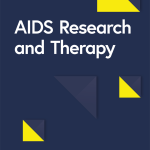In the present study, the aim was to determine the health sciences students’ views about the use of the Metaverse and digital technology in undergraduate education.
There has been a significant increase in the use of technology in all areas of our lives in recent years [27]. Using digital technologies as an effective pedagogical tool to improve the teaching and learning processes facilitates learning [28,29,30]. Therefore, it is important to know health sciences students’ views of digital technologies and to develop appropriate infrastructures so that they can keep up with today’s changing digital norms.
In the present study, the participating students’ mean duration of daily internet use was 6.04 ± 3.22 h. In İlk’s study (2022), 44.5% of the students stated that they used the internet 3–4 h a day [29]. In another study carried out with the Z generation, young people spent 1.5–4 h on the computer by watching movies, TV series, etc., which suggests that the mean duration of daily internet use is similar in the similar age groups [30].
In the present study, of the students, more than half had heard of the concept of metaverse before, the vast majority did not perceive their knowledge of the Metaverse adequate and thought that the Metaverse could facilitate their daily life, more than half did not feel they were ready to use Metaverse, and almost all did not have experience of using the Metaverse platforms or applications. The students’ perceiving their Metaverse knowledge level insufficient and not feeling ready to use metaverse platforms can be explained by the fact that they did not have any experience in using the Metaverse platforms. Similarly, in another study, 70.6% of the students had never used the Metaverse before [24]. In order for education to keep up with current digital technologies, students should be more experienced in these platforms. As the students become more experienced, the aspects of the use of digital technologies in education that should be developed or adapted will become clearer.
One of the surprising results of the present study was that although the students were not experienced in using the Metaverse platform, the majority of them stated that the Metaverse could be used instead of virtual classroom platforms. This was probably because they had heard of the concept of the Metaverse before. In another study conducted with students, it was stated that the Metaverse platform facilitated communication between students during the courses and ensured collaborative learning [31]. In the present study, the students stated that the use of Metaverse in the courses would increase the efficiency of the course although they did not perceive their knowledge of the Metaverse sufficient. As in the present study, in Al-nawaiseh et al.’s study (2023), the use of Metaverse in the classroom setting helped learning [31]. In another study, 67.6% of the students wanted to use the Metaverse in the classroom and 44.1% of them stated that the Metaverse would ensure permanent and meaningful learning in the classroom [24]. The results of the present study suggest that the students had opinions favoring the use of metaverse in classes. In a study in which higher education students’ views of the Metaverse were questioned, most of the students believed that the Metaverse would help their learning better [23].
In the present study, more than half of the students experienced the use of digital technology in the courses and almost all of them thought that digital technology should be used in classes, that digital technologies would facilitate learning and that the use of digital technologies in the classes would increase efficiency. The widespread use of digital platforms in universities [29] can be explained by the fact that students have the opportunity to experience the positive contributions of digital technology use to their learning processes. In another study conducted with health science students, 68% of the students used digital technology for learning purposes [28]. However, several problems such as understanding, adapting and designing educational systems in accordance with current technological trends have arisen in the integration of digital technologies into education [32]. While lack of experience and low digital infrastructure capacity are among institutional problems [32], the problem experienced students is their digital literacy levels [33], and problems experienced by trainers are that they lack experience and that their roles in the classroom change from being educational to being facilitators and guides [33]. However, the area where digital technologies are most effective in education is that they help create collaborative and cooperative learning environments [33].
In the present study, the mean score the students obtained from the overall Metaverse Scale was 53 out of 75 points. This result can be interpreted as the participants’ knowledge and awareness levels regarding the Metaverse were high. Similarly, in another study, the sports science students’ mean score for the awareness of the concept of the Metaverse was above the average [4]. In the present study, the mean score the students obtained from the Attitude Scale for Digital Technology was 135.98 out of 195 points. This finding can be interpreted as the students displayed positive attitudes towards digital technology. Workie et al. (2023), stated that 46.8% of the students displayed positive attitudes towards digital technology [28]. In another study, the students whose attitudes towards digital technology were positive were more likely to use digital technology [34]. In the current study, a weak positive correlation was determined between the students’ attitudes towards digital technology and their level of knowledge and awareness about the metaverse. This finding can be interpreted as the higher the level of knowledge and awareness of the Metaverse, the more favorable the students’ attitude towards digital technology.
In the present study, as in the literature [4], there was no significant difference between the students from different departments and grades in terms of the mean scores they obtained from the overall Metaverse Scale and Attitude Scale for Digital Technology Scale (p > 0.05). However, the sex variable led to a significant difference between the mean scores the students obtained from the overall Attitude Scale for Digital Technology (t: 3,424, p: 0,001). As in the present study, in two other studies, the sex variable led to a significant difference between the students’ attitude towards digital technology [29, 30]. According to the 2022 data released by the Turkish Statistical Institute (TÜİK), male individuals between the ages of 16–24 years displayed more favorable attitudes towards digital technology than did female individuals [35].
In the present study, those who thought that using the Metaverse and digital technology in courses would increase productivity, those who thought that the Metaverse would make our lives easier, those who felt ready to use the Metaverse, those who had experience of using the Metaverse platforms or applications, and those who agreed that the Metaverse platform could be used instead of virtual classrooms, and those who agreed that the use of digital technology in courses would facilitate learning and increase efficiency obtained higher scores from the Metaverse Scale. There was a statistically significant difference between their scores and the other students’ scores (p < 0.05). Similarly, in Talan and Kalınkara’s study (2022), the students agreed with the view that the Metaverse had pedagogical benefits [24]. The mean score obtained from the Attitude Scale for Digital Technology by the participants who had experience in using digital technology in the courses was statistically significantly higher than was that of the participants who did not have experience (t:3.057, p:0.002). Digital technology is critical for the academic performance development of students [28], and their attitudes are positively affected as they experience digital technology, which suggests that positive views on the use of Metaverse and digital technologies in education are associated with higher scores and more positive attitudes towards these technologies. It can be concluded that the integration of digital technologies and the Metaverse into education can improve students’ productivity and their learning experience.
The present study has some limitations. One of the limitations is that it is a cross-sectional study. Another limitation is that the findings were obtained from a single institution. Thus, the results obtained from the present study are applicable only to the students surveyed and they cannot be generalized to all health sciences students. The other limitation is that there was no educational initiative about Metaverse in the university where the study was carried. To overcome these limitations, studies with larger samples including health sciences students studying at different institutions both in Turkey and in other countries of the world can be carried out, and action research can be conducted on this topic. Education policies can be developed to promote the use of Metaverse and digital technologies, which are considered innovative approaches used in educational programs, and educators can be encouraged to participate in faculty development programs to use these technologies.






Add Comment